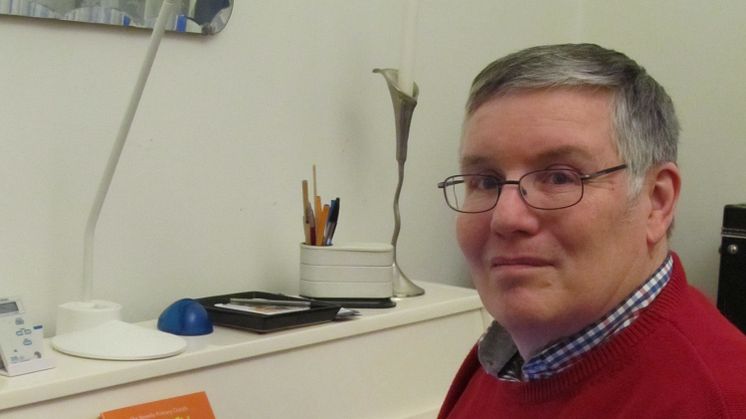
Press release -
Hillingdon stroke survivor urges people to act FAST
The Stroke Association today launches a new initiative to help more people affected by stroke receive emergency medical treatment. The charity is calling for people across Hillingdon to support the FAST Forward campaign by learning the signs of a stroke and sharing the message to help save more lives.
The FAST Test identifies the three most common symptoms of a stroke or mini-stroke and the right action to take:
FACE: Can the person smile? Has their mouth or eye drooped?
ARM weakness: Can the person raise both arms?
SPEECH problems: Can the person speak clearly and understand what you say?
TIME to call 999
Richard Hein, 63, from Hillingdon had a stroke in April 2011 and believes the FAST Test could have saved his life. Richard was a teacher in a large international school, and was a trained musician doing advanced work in composition and music theory. Richard musically directed over one hundred shows, wrote a show that was staged at The Minack Theatre in Cornwall and conducted vocal jazz groups in Italy, Luxembourg and China.
One evening, Richard fell asleep on the sofa whilst watching TV. As he woke up, Richard noticed that he was unable to focus his right eye, and his right hand was curled inwards. Richard knew immediately that he was having a stroke and climbed three flights of stairs to go to his bedroom where his wife was. When Richard got upstairs he noticed that as he was trying to talk, but no sound was coming out.
Richard says, “At the time my mouth was just moving, but there was nothing was coming out. My wife was asking me questions and I could only respond by moving my head. I’ve always been aware of the FAST Test my whole life, and so as soon as I picked up on the symptoms, I knew it was time to get help fast. Since my stroke I still have aphasia, but I’m gaining more and more confidence every day. I run a stroke survivor iPad group at Uxbridge Central Library, and help with the Stroke Association’s Back to Work Project. I’d tell anyone who thinks they may be having a stroke to act FAST and get help immediately.”
Michelle Dalmacio, Deputy Director for the Stroke Association in London said: “When it comes to stroke, time lost is brain lost. A stroke is caused by a blockage or a bleed in the brain, which cuts off the brain’s flow of oxygen and causes brain cells to die. So recognising the symptoms of stroke and calling 999 for an ambulance as quickly as possible is absolutely vital. Acting FAST can help reduce the devastating impact a stroke can have.
“We know that a quarter (24%) of people in London wrongly believe a stroke could never happen to them (i). Sadly this cruel condition can happen to anyone at any time. The more people who are FAST aware, the more lives we can save.”
To find out more about the FAST Forward campaign, and to view information and support available, visit www.stroke.org.uk/FastForward
Topics
Regions
A stroke is a brain attack which happens when the blood supply to the brain is cut off, caused by a clot or bleeding in the brain. There are around 152,000 strokes in the UK every year and it is the leading cause of severe adult disability. There are over 1.2 million people in the UK living with the effects of stroke.
Stroke Association is a charity. We believe in life after stroke and together we can conquer stroke. We work directly with stroke survivors and their families and carers, with health and social care professionals and with scientists and researchers. We campaign to improve stroke care and support people to make the best recovery they can. We fund research to develop new treatments and ways of preventing stroke. The Stroke Helpline (0303 303 3100) provides information and support on stroke. More information can be found at www.stroke.org.uk
(i)Opinium Research conducted an online survey of 2,002 UK adults aged 18 and over from 2 – 8 September 2014











